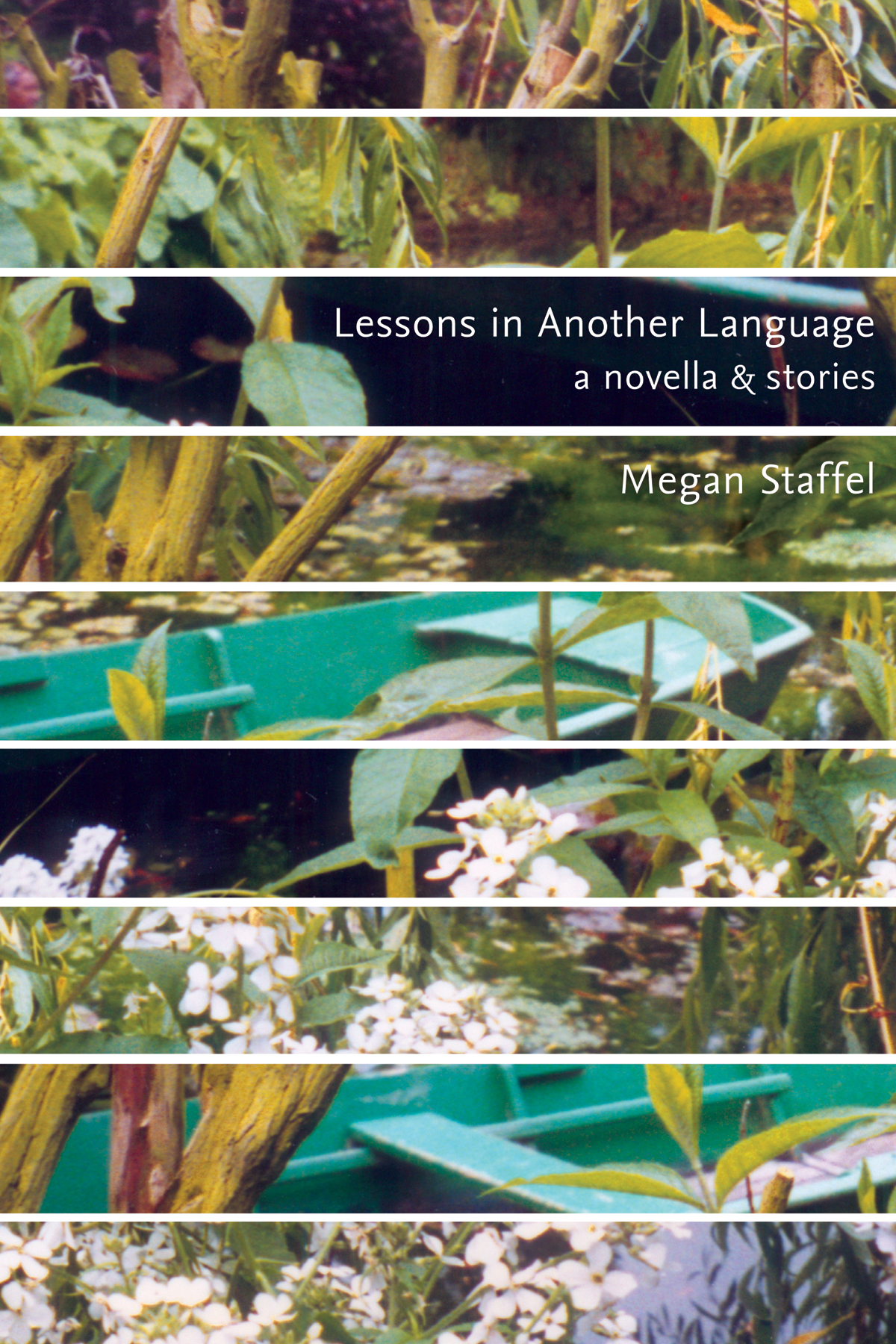
paper • 210 pages • 18.95
ISBN-13: 978-1-935536-00-0
Not since Alice Munro’s The Beggar Maid has there been a book which so articulately reveals the complex emotional spectrum of children caught in the adult world. The novella and four stories in Lessons in Another Language give voice to adolescent protagonists who inhabit rich emotional and sensual worlds as they navigate the wreckage created by the adults meant to be caring for them. In “Daily Life of the Pioneers,” two misguided parents send their children to an austere summer camp designed to mimic the lives of the “pioneer children […] your diet will be raw vegetables which are very tasty and very healthy.” “’Why?’” asks one of the children, a question that resonates through Staffel’s stories as they present the often-naïve ways we adults project our lives and anxieties onto our children. Charlotte, newly arrived at a Southern college, wanders into town and is seduced by a thirty-something guy with a car because “the way he looked at her made her feel like maybe she wasn’t the only refugee. Like maybe he knew her same troubles.” Lessons in Another Language
weaves evocative narratives of abandonment and confusion, of hope betrayed more often than fulfilled.
From “Natives and Strangers,” from Lessons in Another Language:
School had ended. Now Sam would have only himself to depend on. For two months, there would be no regular meals and nothing to take him away from the pile of buildings after the bend on Quigg Hollow Road where the Deer Cutter sign stood at the silver mailbox.
The way he saw it, reading and math were useless. Science wasn’t any help either. History maybe. His father was a Vietnam vet and history might help explain some things. But with summer vacation, the days stretched forward in endless repetition, his mother napping through the warm afternoons, which meant she was as good as gone when his father was raging in the kitchen, and explanations didn’t matter. He had to get low, stay quiet, very, very quiet, quiet as the dog Sunshine when he was watching a bug, and keep to himself. Not talking, not saying anything except those times when he was asked something directly. Sometimes he felt he was no different from the animals, including the insects, the birds, but mostly the insects. He was no different, certainly no better, and that wasn’t a bad thing. It got him through the summer and up to the day school began again when he could rise from insect to human and think his way into all of those problems they tossed out. Like, what is the square root of 77? In summer it didn’t make any difference if it was 8.7 or minus 3. It made no difference at all.
Those were the things he might blame for the emptiness of the days. Or maybe he just wasn’t the type to have friends. That summer, besides being a bug and staying low and quiet, he did a lot of riding on his bike, miles and miles, and everyday he stopped in the marsh across from the house at the end of Quigg Hollow Road to watch. First the For Sale sign had appeared. That’s what caught his interest in the first place. Who would want to live on Quigg Hollow where it was only Sperry, the deer cutter, and farther down, a bunch of hardly used hunting camps? But the previous fall somebody had built the house on the stretch of brushy land just off of 417, and then on June first, the For Sale sign appeared.
“Megan Staffel does rural and urban, adolescence and adulthood, tough and tender, story and novella, with equal felicity and grace. The range of this collection—emotional and formal—is as astonishing as her rich and tender evocation of what it is to be alive. This is a book with a vigilant spirit, built to linger and bloom.” — Michael Parker
“Each of these vividly imagined, richly peopled stories invites the reader into a complete world, and each demonstrates how well Megan Staffel understands the degree to which our lives are defined by family, place and money. In prose both lyrical and colloquial she depicts the lives of characters hovering on the edge of mystery. Lessons in Another Language is a lovely and illuminating collection.” — Margot Livesey
“Rich narratives offering new, compelling translations of what it means to be a family in the modern world.” — Fore Word Reviews Book of the Year Award
“I didn’t just read this book. It was one of the rare ones that could be savored. The flow of prose unwinding transparent and tensile as spider silk, lightness catching the light.” — Stuart Dybek